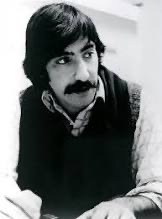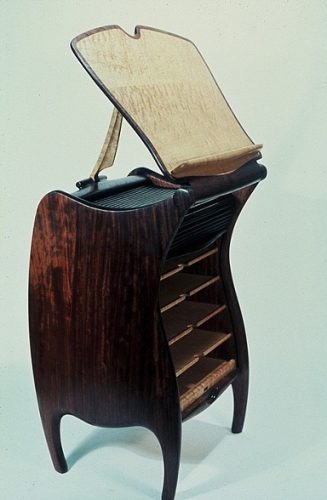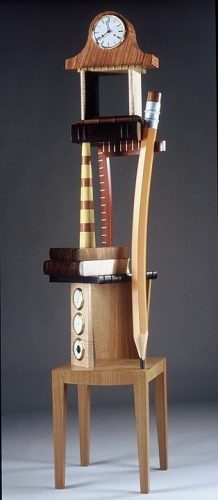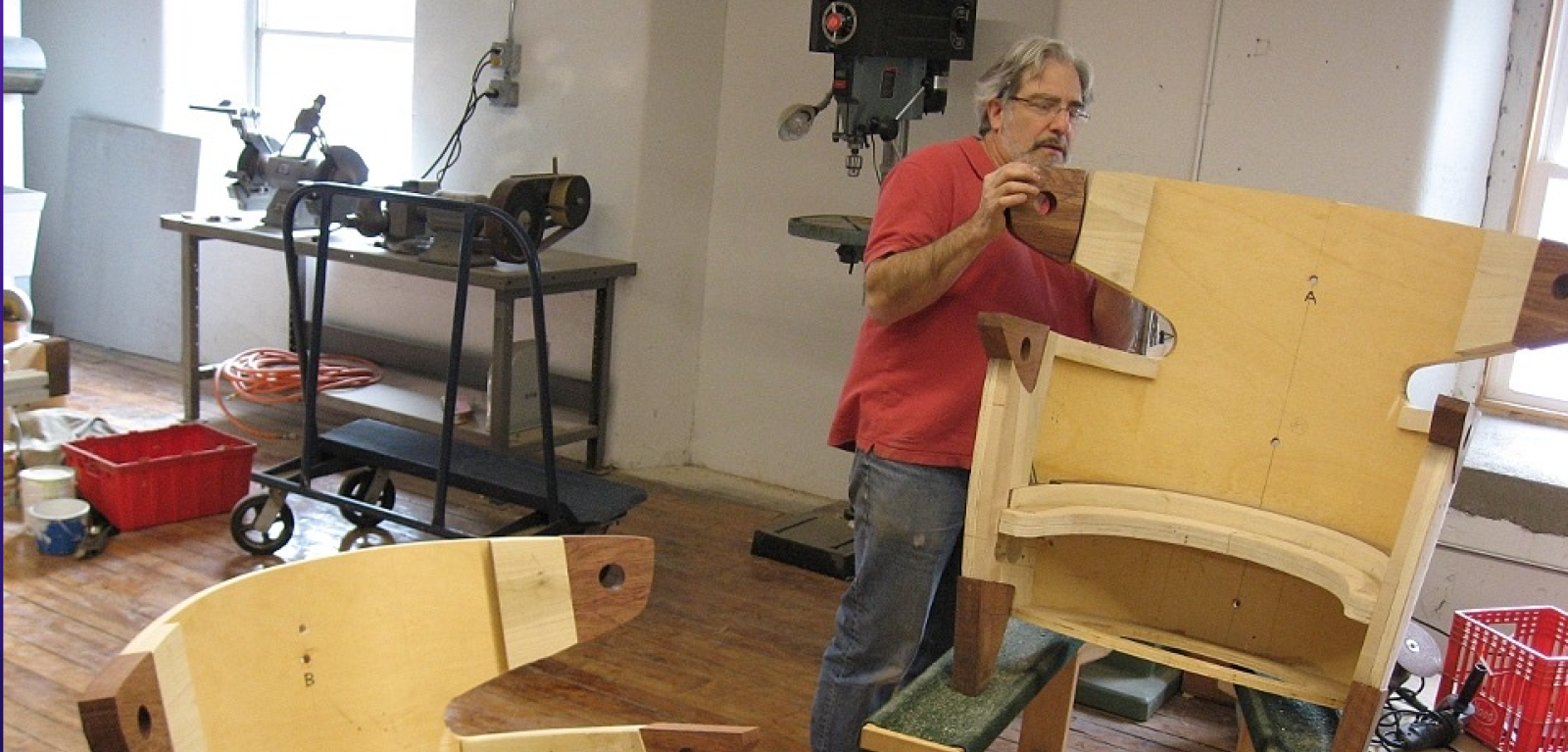
WHEN Alphonse Mattia first arrived on the campus of Boston University in 1976 as a 30-year old educator, he began a journey in Boston and throughout New England that would ultimately establish him as one of the top furniture woodworkers and interior designers globally.
Widely recognized among peers and scholars alike as the “Father of Modern Studio Furniture” Mattia’s meticulous sculptures continue to be influential in many of today’s luxury designs.
Dismissing the dichotomy between functional and nonfunctional objects, Mattia instead preferred the concept of “usefulness” –something that conveys meaning and emotion along with utility in his work, which has offered interiors worldwide a unique and distinguished option in studio design.

As an educator Mattia was instrumental in the establishment of Boston University’s Program of Artisanry, which led to international recognition and several design awards, most notably for its -at the time- unique philosophy of emphasizing art over craft. The school was later purchased by the historic Swain School of Design in New Bedford in 1985.
Originally from Philadelphia, Mattia was born in 1947 to Italian-American parents, whom he inherited his maker skills, and earned a BFA degree from the Philadelphia School of Art, where he built his entire portfolio for admission by drawing pictures from photos from an issue of Surfer Magazine that he had bought on a newsstand. He received his MFA in interior design in 1973 from the Rhode Island School of Design where he also studied furniture as an apprentice under the legendary Tage Frid.
Mattia would go on to teach at Virginia Commonwealth in Richmond from 1973-1976 before arriving in Boston. The bulk of his teaching career would be at The Rhode Island School of Design, where he met and married Roseanne Somerson.
He would often site architectural influences from Philadelphia, Boston, Newport RI, and Richmond -cities with some of the most beautiful design in the country- as being omnipresent in his work.
“As a maker and as an educator,” former student Tom Loeser said. “Alphonse Mattia had a lot to do with moving the field forward from conservative traditions and opening up the possibility of narrative and conceptually-driven furniture that ventured outside of and expanded the historical models for furniture.”

This unique and artistic approach to furniture design paved the way for Mattia’s pieces being held in museums spanning the globe, including:
The Philadelphia Museum of Art; The Museum of Art and Design in Manhattan; The Museum of Fine Arts Boston; The Yale University Art Collection; The Smithsonian Museum in Washington DC; The Fine Arts Museum of San Francisco; and The Rhode Island School of Design Museum.
He is considered a pioneering and defining voice of both the American Studio Furniture and Avant Garde Furniture movements.
Some of Mattia’s most memorable pieces include:
- The Venus Chair featuring a flowing design that suggests movement and grace.
- The Bronze Candlestick Bed made with Lacewood, wood brass, aluminum, and electrical touch circuit.
- Time in Precarious Bookcase made with wood, featuring a striking, asymmetrical design. Consisting of four columns that lean and twist away from each other, Mattia stated that the piece is meant to evoke the passage of time.
MOST recently Mattia and Somerson co-founded Smokestack Studios, a collective studio of artists housed in Fall River’s historic Metacomet Mill in 2007. Partnering with Charlie Swanson and Eck Follen, Mattia and Somerson merged their independent studios with their friends to form a collective space. Since then, Smokestack Studios has housed numerous artists -many traveling great distances- working in a variety of mediums and styles; all honored to learn from and share space, and be inspired by an icon like Mattia.
Metacomet Mill and the surrounding areas of Fall River are a hotbed for culture and the creative arts, located minutes away from the gallery of Spring 2021 BostonMan Magazine cover Brian Fox and The Vietnam War Project.
ON April 10th Alphonse Mattia passed away surrounded by family and friends, after a courageous battle with lymphoma.
Among his many accolades: Mattia was the recipient of a Massachusetts Artists Foundation Fellowship in 1986 and a National Endowment for the Arts Fellowship in 1984. In the late 1990s, he served as the director of the Society of Arts and Crafts in Boston, a nonprofit organization that promotes contemporary craft by supporting artists and offering educational programs and exhibitions. He was elected into the American Craft Council College of Fellows in 2005.
“Along with his prolific furniture portfolio and teaching practice, Alphonse turned distraction into an art form,” said The Furniture Society, where a scholarship in Mattia’s name has been named.
“He never met a napkin he didn’t draw on, and made fast and long-lasting friends easily in each of the diverse communities surrounding his hundreds of seemingly random hobbies. He loved sweets, movies, television, and air-conditioning, and could always derail a productive meeting by slicing donuts into little pieces to share, and spoiling the plot twists from his favorite movies. His proudest accomplishment was to make a serious person laugh. He was an incredible story teller, and loved to read and write short-stories and poetry.”
OVERALL, Alphonse Mattia has been such an important figure in the Boston and New England art world for decades; influencing design through his teaching, exhibitions, and advocacy for contemporary craft and sculpture. He will forever be remembered globally for his incredible talent, humor, and unique approach to furniture and object design.
The Boston community honoring Alphonse Mattia’s contributions to the arts, will ensure that his legacy continues to inspire and inform future generations in furniture design for years to come.












